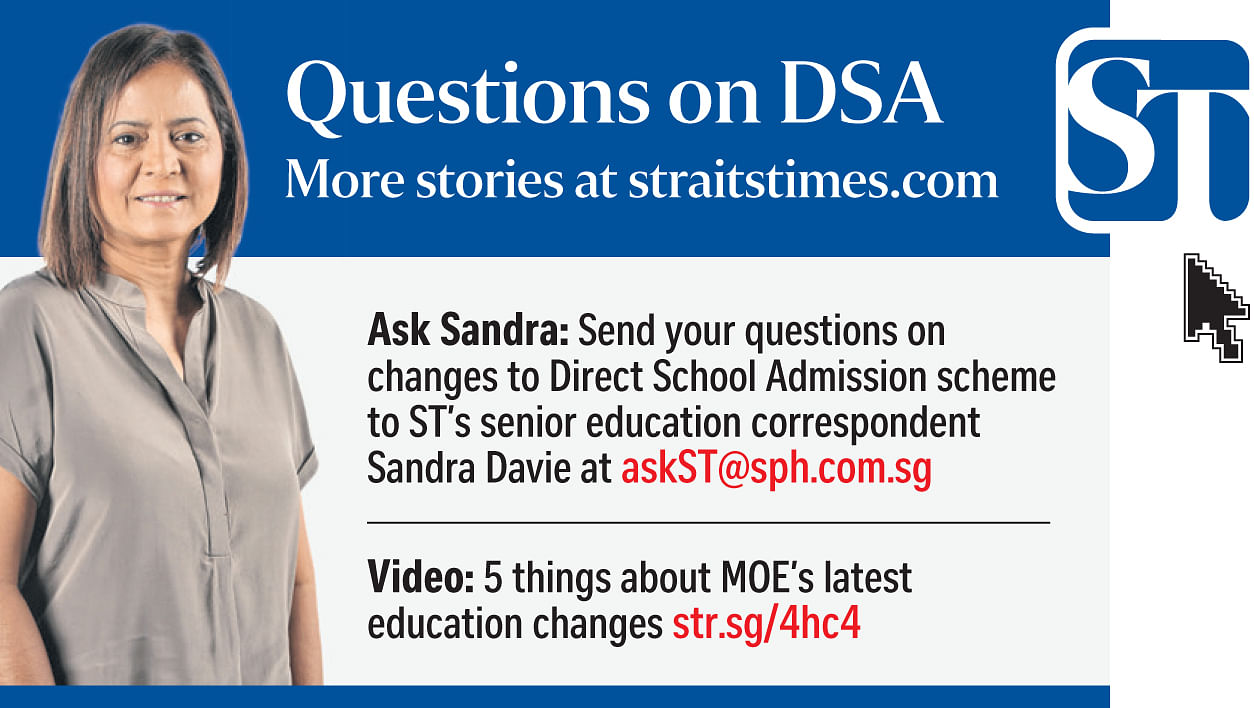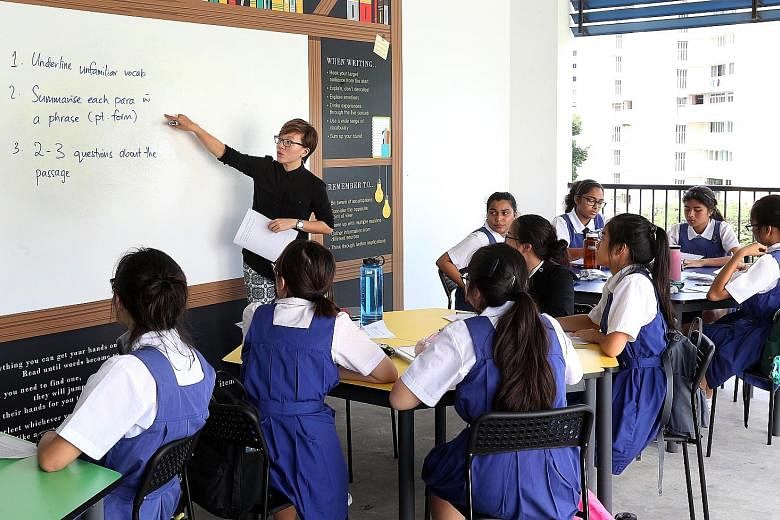From next year, a pilot scheme that allows lower secondary students from the Normal (Academic) and Normal (Technical) streams to take subjects at a higher academic level will be extended to all schools.
The scheme, which has been on trial in 12 secondary schools since 2014, allows students from the N(A) and N(T) streams who score at least an A for English, mathematics, science or mother tongue at the Primary School Leaving Examination (PSLE) to study the corresponding subjects at the Express level.
Students in the N(T) course who score B or C in a standard PSLE subject or a 1 in a Foundation subject, could take the subject one level higher, at the N(A) level. If students perform well in their subjects after starting Secondary 1, their schools may also offer them the chance to take subjects at a higher level.
Responding to Dr Intan Azura Mokhtar (Ang Mo Kio GRC), who asked on Monday if streaming can be done away with, Education Minister (Schools) Ng Chee Meng said in Parliament yesterday that streaming has served students well in catering to different learning needs, resulting in low attrition rates.

"Nonetheless, I recognise that we cannot take a one-size-fits-all approach... For students with uneven strengths across their subjects, they can stretch themselves in their areas of strength through subject- based banding."
This builds on a flexible subject- based banding (SBB) system that has already been in place for upper secondary students since 2003. N(T) students can study N(A) subjects, while N(A) students can study O-level subjects at Sec 4. In lower secondary, students can take up to three subjects at a higher level, while there is no cap on the number of higher-level subjects that upper secondary students can take if they are eligible.
About half of Sec 1 N(A) students and about 70 per cent of N(T) students in the 12 schools where SBB was piloted took at least one higher- level subject between 2014 and last year. This translates to about 400 N(A) students and 300 N(T) students across all 12 schools each year.
The Ministry of Education (MOE) added that most from the first batch of Sec 1 students who took higher-level subjects in 2014 continued taking at least one higher-level subject in Sec 3 and 4. A small number of students, however, did not continue due to "difficulties in keeping up with the faster pace of learning and the heavier load".
To help schools and teachers cope, the MOE has allocated more teachers to schools with more N(A) and N(T) students. Teaching resources, as well as courses and networking sessions, have also been organised by MOE to support and guide these teachers.
Mrs Pauline Wong, principal of CHIJ St Theresa's Convent, one of the 12 schools that joined the pilot, said that more planning and resources are needed to ensure that SBB is implemented smoothly.
"Our planning time has doubled because of its complexity. You now have more learning groups, and you need more teachers and spaces where students can have classes," she explained.
But she added that SBB has been a "morale booster" for her students, including even those who had to drop the higher-level subjects because they could not cope academically. She said: "They actually do very well when they go back (to taking the subject at a lower level) because they have a good foundation."
Fifteen-year-old Pritika Satewan, a Sec 4 N(A) student at St Theresa's Convent, was offered the chance to take maths at the Express level when she scored well in Sec 1, despite scoring a C in the subject in the PSLE. Pritika, who hopes to gain entry to junior college, said that taking subjects at a higher level reduces the number of subjects that she has to study for when she gets to the O level next year.
"When I was first offered the chance to take (higher-level maths), I was scared that I would fail," recalled Pritika.
But she has done well in the subject. "If students... are not scoring well initially, it's because it is a change for them, and they can get better with practice," she said.


